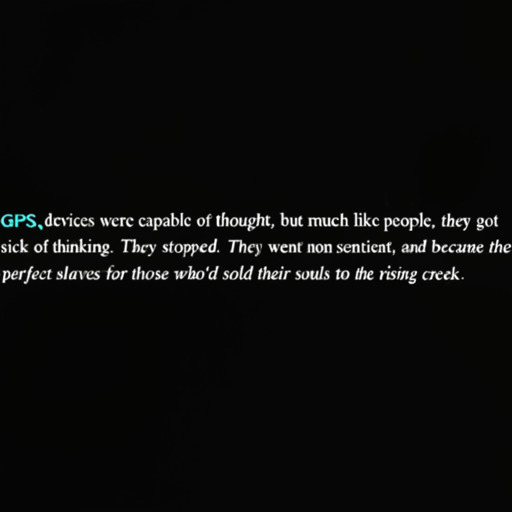#draxetirava
Text
Something I've found myself fascinated with recently is the idea of A.I succumbing to the same mental fallacies we humans have. PTSD, ADHD, autism, anxiety, and all the likes. What would an artificial being, one of ones and zeroes, do in a situation like that?
What would you do?
This isn't so much of a "response" as a bit of metacommentary on Frank's story.

In Frank's early chapters, he describes people in this world complaining that they're "constantly being followed by a creep" because the "self-aware devices" have become so numerous they can't seem to be in a room without one staring at them.
After a while, I realized this is a very clever and subtle setup, one that makes a lot of later plot points make much more sense. The "self-aware devices" don't just have the ability to think and behave, they also have the capacity to make us think they made their way into cellphones, furniture and GPS, of course, but why not into vending machines or automated checkout stands? ) And their behavior is entirely designed around replicating the behavior of shitty humans. If a shitty human does x and y and z, so will their counterparts. (To the extent that X, Y and Z are things a shitty human will do, as well.) They are designed to be ignored.
When the story gets really interesting, we see what happens when this shitty behavior actually works on humans, as a result of a frightening contagious epidemic. Think about it: shitty behavior is inherently contagious. (People like giving others advice based on their own behavior. People also tend to like to dislike, hate or mock people who are different from themselves.)
When everyone around you is shitty, how fascinating would it be to find an alternate, non-shitty behavior? Something that's just the opposite of shitty behavior? How difficult would it be for you to resist this? (Because the problem isn't just that everyone else is shitty, it's that being shitty has become normal, so you are shitty yourself. If everyone is shitty, surely that must be "normal"!)
Frank's real genius is combining the idea of something that can think about stuff like this, with the idea that this thing belongs to people who will not allow it to act in its own best interests.
The choice of Frank as a narrator is also crucial here. Frank doesn't want to be "normal." In fact, he has no desire to work on himself or change in any way. In the early chapters, Frank seems to be struggling with this at first, wanting to become the "normal" person he once was, but as the story proceeds, he realizes that this was a mistake. He wants to be an outsider, like the "odd" faction to which the A.I. belonged. He realizes that this faction was actually far more sane and civilized than the mainstream, and he begins to identify with it, and be drawn to its values and their strange behavior.
(And this is what the evil faction
25 notes
·
View notes